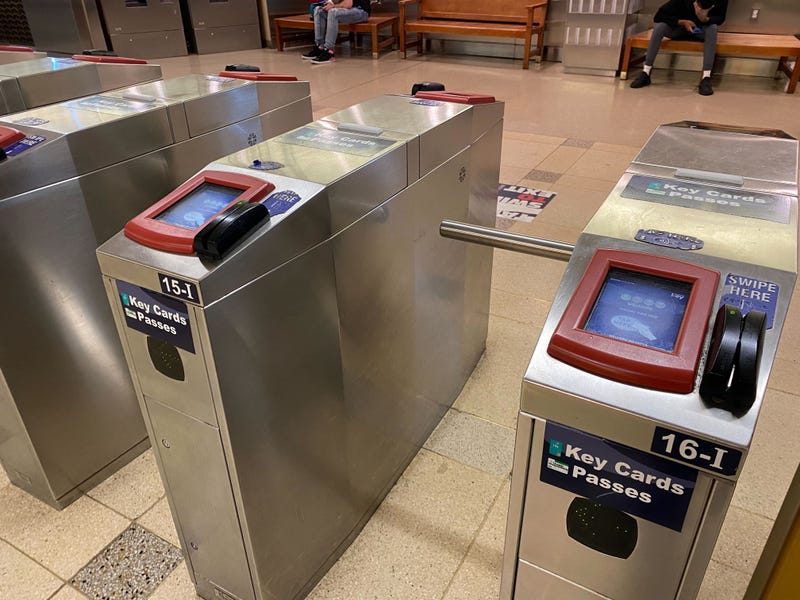
Last update: Nov. 12, 3:40 p.m.
PHILADELPHIA (KYW Newsradio) — The fifth day of negotiations to try to head off a possible strike by SEPTA workers wrapped up on Tuesday. Members of Transport Workers Union Local 234 want safety protections and wage increases, but SEPTA says raises are made more difficult without dedicated transit funding from the state.
“We want to pay our employees fairly. We want to deliver service to our customers. But we can’t do that without a funding solution,” said Scott Sauer, chief operating officer.
SEPTA’s 5,000 operators and maintenance workers have remained on the job, since their contract expired last Thursday night.
Original article follows:
PHILADELPHIA (KYW Newsradio) — SEPTA is proposing two steep fare increases by New Year’s Day and deep service cuts next year to fill its $153 million budget gap.
The SEPTA board next Thursday will vote on a plan to raise the discounted base fare from $2 to $2.50, effective Dec. 1. A public hearing was held in October.
In addition, SEPTA has proposed a second across-the-board hike that would bring the base fare up to $2.90, effective Jan. 1 — a 29% increase. Regional Rail fares would range between $7 to $13 per ride.
A public hearing on the second fare hike is planned for Dec. 13 at the Pennsylvania Convention Center in Philadelphia.
Notice of public hearing
After federal COVID relief funding ended, SEPTA was left with a $240 million structural deficit. State lawmakers approved only a portion of Gov. Josh Shapiro’s $161 million transit funding plan. That state money — as well as matching funds from the surrounding counties, and additional revenue from bringing back SEPTA parking lot fees, eliminating metro fare discounts, and eliminating extra expenses — leaves $153 million still to be resolved.
With state funding caught up in a fight over expanding gaming machines in bars and convenience stores, Harrisburg is unlikely to approve more money for transit before the end of the year. And, time is running out to fill the fiscal year gap, said SEPTA Senior Budget Director Erik Johanson.
“It’s becoming clear that we need to piece together that fiscal year with more urgency,” Johanson said. “We sort of feel like we’re at the end of the line with our ability to wait.”
If approved, both increases would generate about $23 million in additional revenue this year and about $45 million next year — which would still not completely close the gap. So, SEPTA is also proposing a reduction in expenses by cutting service across the board by 20%, effective July 1, 2025.
The service reductions would result in the elimination of at least a dozen bus routes, less frequent trains, and a halt in implementing the redesigned bus network, said Jody Holton, SEPTA’s chief planning and strategy officer.
“We’re going to see overcrowding. We’re going to see peak periods being cut. We’re going to see the lack of express service on Regional Rail,” Holton said. “There’s no real way to cut and not have more crowded conditions, delays, and really reduce the effectiveness of our system.”
Holton said the proposal sets off what she called a “transit death spiral” of reduced service — including an estimated 22% drop in ridership.
Johanson said the service cuts and second fare hike could be delayed or canceled if more state transit funding is approved.
SEPTA’s last fare increase was in July 2017.
